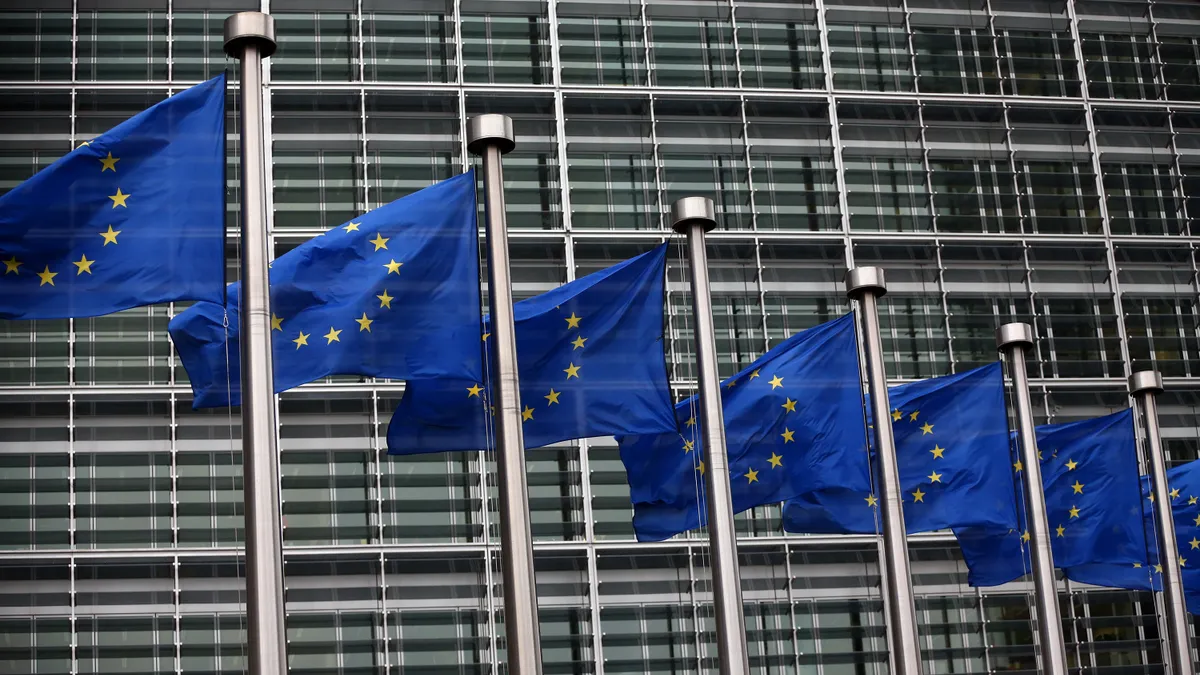Dive Brief:
- The European Council has adopted a directive that delays sustainability reporting requirements for companies based outside the European Union and firms from specific sectors by two years, the governing body said last week. Exempted companies will now have until June 30, 2026 to comply with the Corporate Sustainability Reporting Directive.
- The announcement follows the European Parliament’s Committee on Legal Affairs approval of the deferred timeline by a 21-2 vote in January. The postponement of reporting requirements for certain entities was first proposed by the Commission in October as part of its 2024 Work Programme.
- The two-year delay extends the reporting timeline for non-EU companies and companies in the following sectors: oil and gas; mining, coal and quarrying; road transport; motor vehicles; textiles; agriculture and farming; food and beverage; real estate; power production and energy utilities; and capital markets, insurance and banking.
Dive Insight:
The Council said its final approval on the CSRD’s amended adoption timeline was the “last step in the decision-making procedure.” The delay will give exempted companies more time to focus on the implementation of broader sustainability reporting requirements laid out in the CSRD, limiting their reporting requirements to a “necessary minimum,” according to the EU body.
The Council noted that the deferral would also give the EU more time to develop standards for specific sectors and companies headquartered outside of the bloc.
The first set of companies that have to comply with the CSRD — which went into effect on Jan. 1 — must include the sustainability reporting metrics outlined in the directive in their annual reports beginning in 2024. The European Commission said it recognized the “extra burden” these reporting requirements imposed on companies in its draft report earlier this year, and it aimed to simplify these requirements and reduce such burdens by 25%.
The directive impacts all companies listed on an EU-regulated market — including both EU and non-EU entities — and also affects U.S. companies with EU subsidiaries. An EU subsidiary of a U.S. company would be required to report its sustainability efforts and operations if it meets certain thresholds regarding asset, revenue and workforce figures.
Final confirmation of the two-year delay now awaits the signatures of the presidents of the European Parliament and the Council. Once signed, the directive will be published in the Official Journal of the European Union and will be executed twenty days after its publication, per the Council’s announcement.












